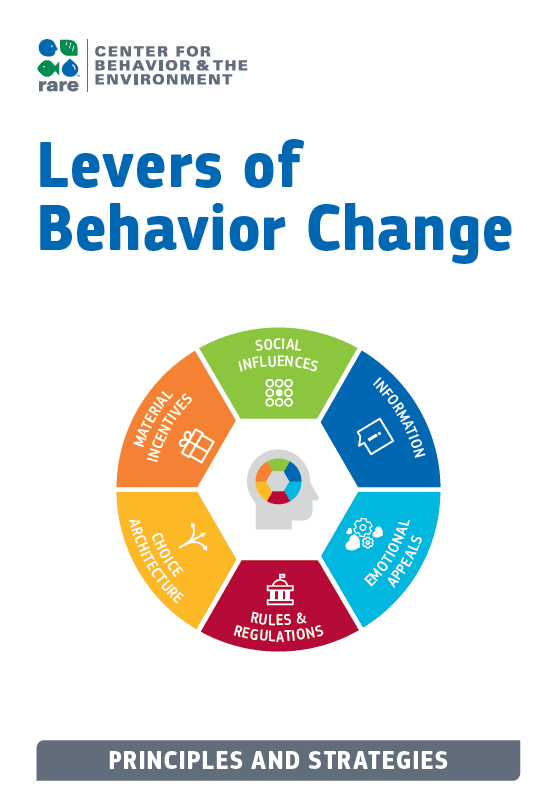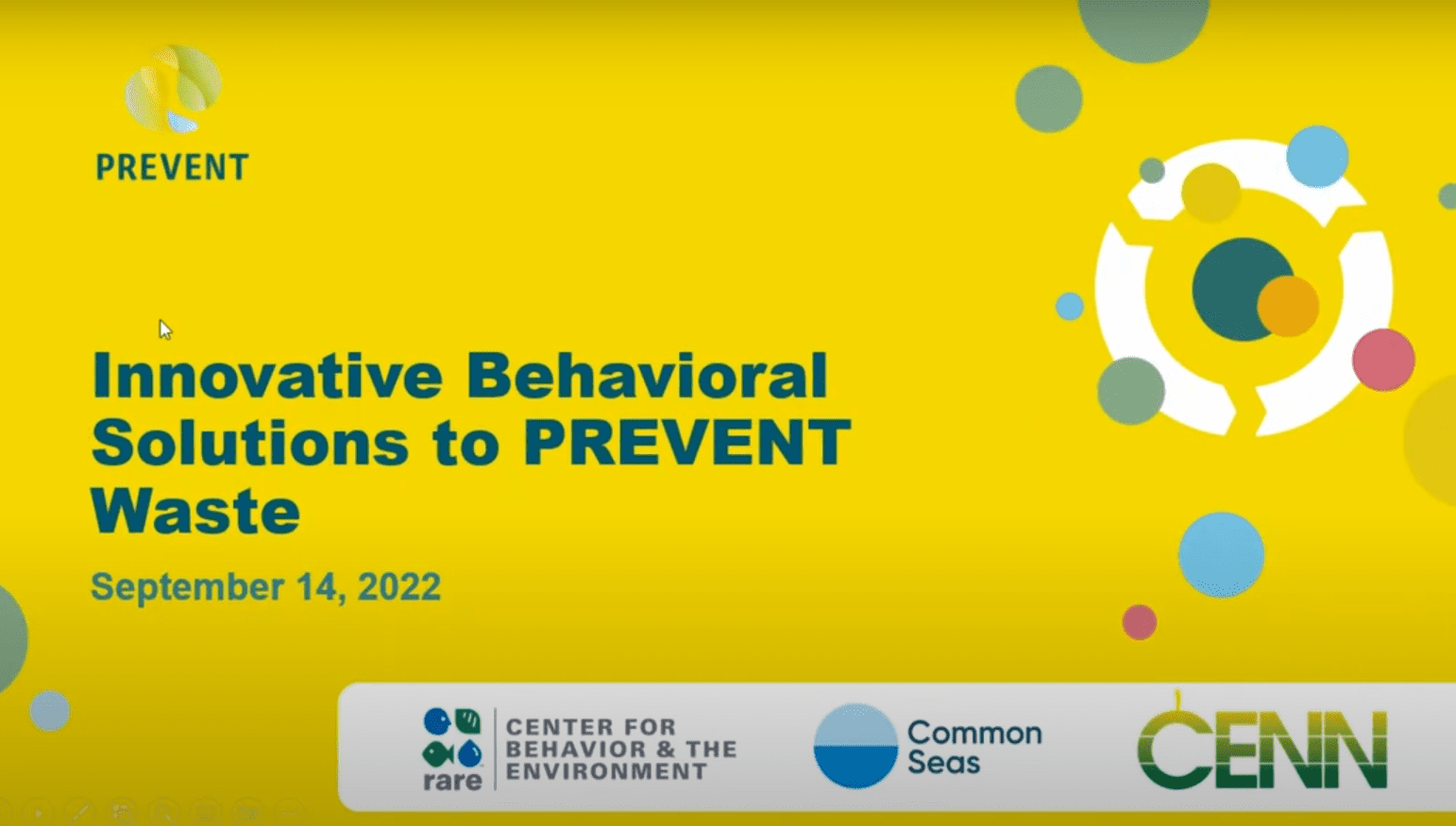Challenges
- Environmental challenges are behavioural challenges: Someone somewhere needs to be doing something differently
- Environmental solutions often only use traditional levers of behaviour change (like information) which are not effective on their own
- Applying a structured behaviour-centred design approach helps to effectively change behaviours and achieve more impact
Our Solution
The BE.Innovative programme helped members of the PREVENT Waste Alliance to leverage insights from behavioural science and design thinking to design more effective approaches to waste prevention and circular economy.
Download Project FactsheetResources

Resources on Behaviour Change by Rare's Center for Behavior & the Environment
Rare's Center for Behavior & the Environment offers valuable resources on behaviour-centered design.
Go to Rare's website
Innovative Behavioural Solutions to Prevent Waste
In this video, the two winners of the BE.Innovative Contest, Common Seas from Indonesia and Caucasus Environmental NGO Network (CENN) from Georgia, present their behavioural solutions.
Watch on YouTube